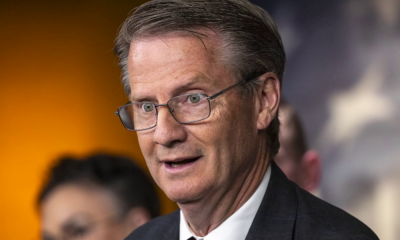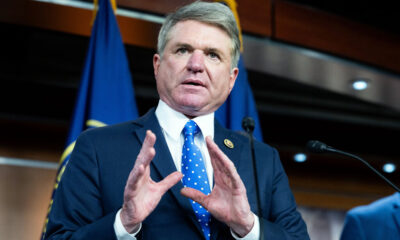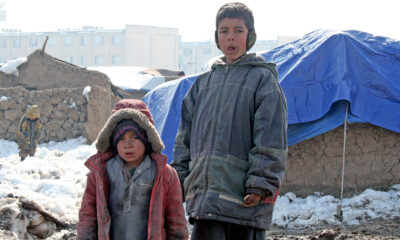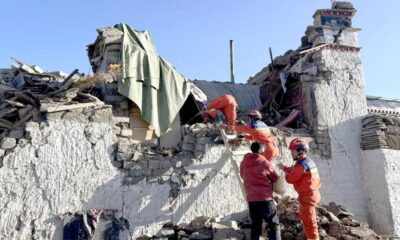Regional
Syria’s new rulers urge US to lift sanctions during visit to Doha
Syria’s Foreign Minister Shibani, who is on his second foreign trip in less than a month after former President Bashar al-Assad was ousted, said that Qatar will be a partner in the new phase in Syria
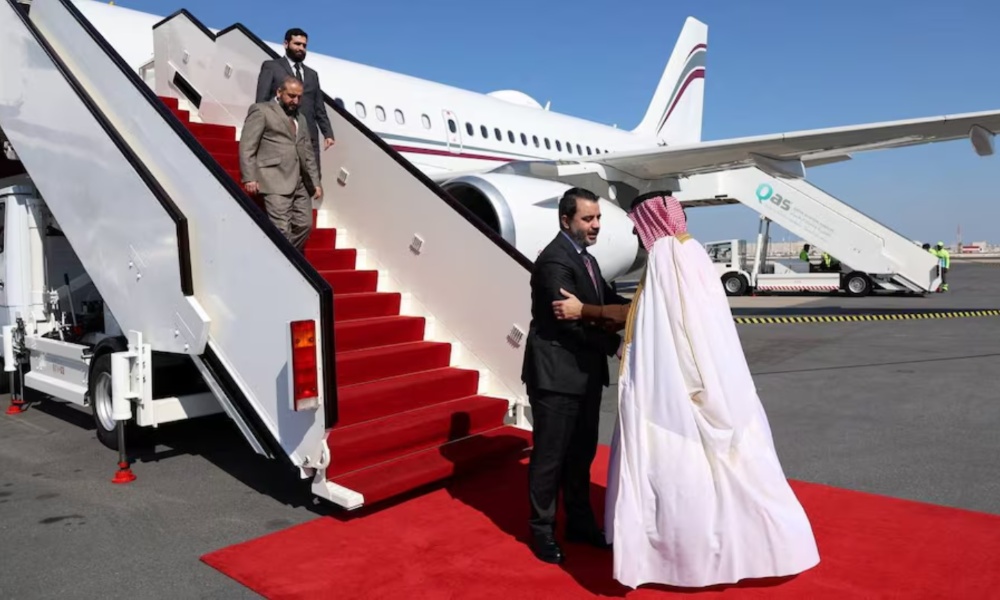
Syria's new Islamist rulers said on Sunday that U.S. sanctions on Syria were an obstacle to the war-torn country's rapid recovery and urged Washington to lift them during a visit by Syrian officials to Qatar.
"These sanctions constitute a barrier and an obstacle to the rapid recovery and development of the Syrian people who await services and partnerships from other countries," Syria's Foreign Minister Asaad Hassan al-Shibani told reporters after meeting with Qatar's Prime Minister Sheikh Mohammed bin Abdulrahman Al Thani, who also serves as foreign minister.
"We reiterate our calls for the United States to lift these sanctions, which have now become against the Syrian people rather than what they previously were: imposed sanctions on the Assad regime," he said.
Shibani, on his second foreign trip less than a month after former President Bashar al-Assad was ousted by rebels on Dec. 8, said that Qatar will be a partner in the new phase in Syria, Reuters reported.
Doha had not normalised ties with Assad over his government's violent response to 2011 protests and backed the Syrian opposition instead.
Shibani, who was joined by Syrian Defence Minister Murhaf Abu Qasra and Head of Intelligence Anas Khattab, met with other senior Qatari officials including Minister of State for Foreign Affairs Mohammed Al-Khulaifi, a Qatari official told Reuters earlier.
Shibani presented the Qataris a clear roadmap for the near future in Syria and steps that would be taken by the new Syrian administration, Al-Khulaifi told reporters after the meeting.
"We are working together to prevent any foreign interference in Syrian affairs," Al-Khulaifi added.
Shibani said the roadmap is meant to "rebuild our country, restore its Arab and foreign relations, enable the Syrian people to obtain their civil and basic rights, and present a government that the Syrian people feel it represents them and all their components."
He is expected to also visit the United Arab Emirates and Jordan this week to "support stability, security, economic recovery and build distinguished partnerships," according to his account on X.
Shibani embarked on his first foreign trip to Saudi Arabia on Wednesday, less than a month since former President Bashar al-Assad was ousted by rebels on Dec. 8, where Saudi officials discussed how best to support Syria's political transition.
Regional
Powerful earthquake kills at least 53 in Tibet, rattles Nepal
The epicentre of Tuesday’s earthquake was around 80 km north of Everest, the world’s highest mountain and a popular destination for climbers and trekkers
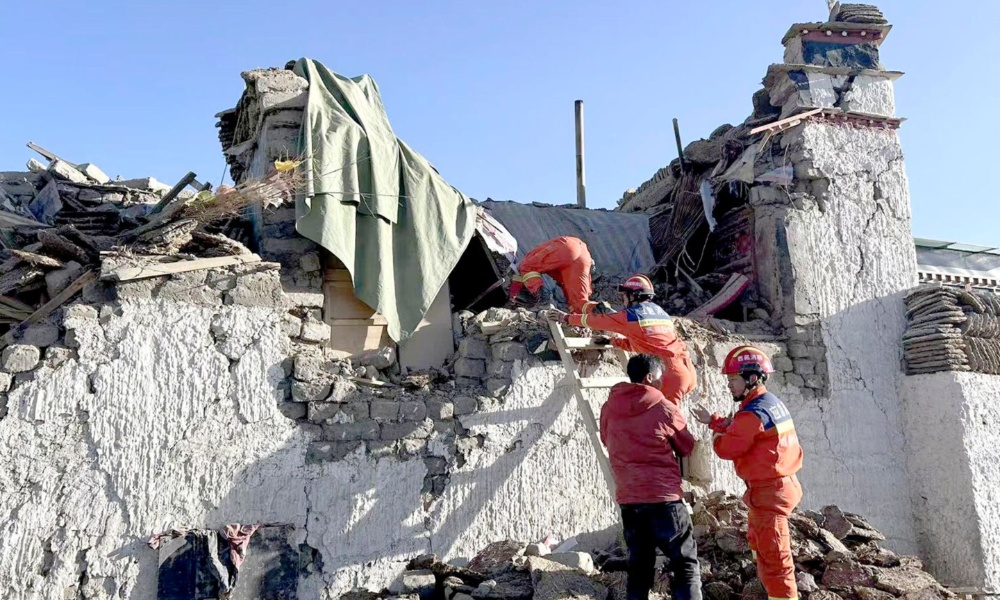
A magnitude 6.8 earthquake, rocked the northern foothills of the Himalayas near one of Tibet's holiest cities on Tuesday, Chinese authorities said, killing at least 53 people and shaking buildings in neighbouring Nepal, Bhutan and India.
The quake hit at 9:05 a.m. Tibet time, with its epicentre located in Tingri, a rural Chinese county known as the northern gateway to the Everest region, at a depth of 10 km, according to the China Earthquake Networks Centre.
The U.S. Geological Service put the quake's magnitude at 7.1.
At least 53 people had been killed and 62 injured on the Tibetan side, China's state-run news agency Xinhua reported.
Southwestern parts of China, Nepal and northern India are frequently hit by earthquakes caused by the collision of the Indian and Eurasian tectonic plates.
A magnitude 7.8 tremor struck near Kathmandu in 2015, killing about 9,000 people and injuring thousands in Nepal's worst ever earthquake.
Among the dead were at least 18 people killed at the Mount Everest base camp when it was smashed by an avalanche.
Tuesday's epicentre was around 80 km north of Everest, the world's highest mountain and a popular destination for climbers and trekkers.
Winter is not a popular season for climbers and hikers in Nepal, with a German climber the lone mountaineer with a permit to climb Mount Everest.
He had already left the base camp after failing to reach the summit, Lilathar Awasthi, a Department of Tourism official, said.
Nepal’s National Disaster Risk Reduction and Management Authority (NDRRMA) said the tremors were felt in seven hill districts bordering Tibet.
"So far we have not received any information of any loss of life and property," NDRRMA spokesman Dizan Bhattarai told Reuters.
"We have mobilised police, security forces and local authorities to collect information," he said.
Many villages in the Nepalese border area, which are sparsely populated, are remote and can only be reached by foot.
The impact of the quake was felt across the Shigatse region of Tibet, home to 800,000 people. The region is administered by Shigatse city, the traditional seat of the Panchen Lama, one of the most important figures in Tibetan Buddhism.
Chinese President Xi Jinping said all-out search and rescue efforts should be carried out to minimise casualties, properly resettle the affected people, and ensure a safe and warm winter.
Villages in Tingri, where the average elevation is around 4,000-5,000 metres, reported strong shaking during the quake, which was followed by dozens of aftershocks with magnitudes of up to 4.4.
Crumbled shop fronts could be seen in a video on social media showing the aftermath from the town of Lhatse, with debris spilling out onto the road.
Regional
Iran’s nuclear programme nearing point of no return, France’s Macron says
The head of the U.N. nuclear watchdog said in December that the Islamic Republic was “dramatically” accelerating enrichment close to the roughly 90% level that is bomb-grade, read the report.
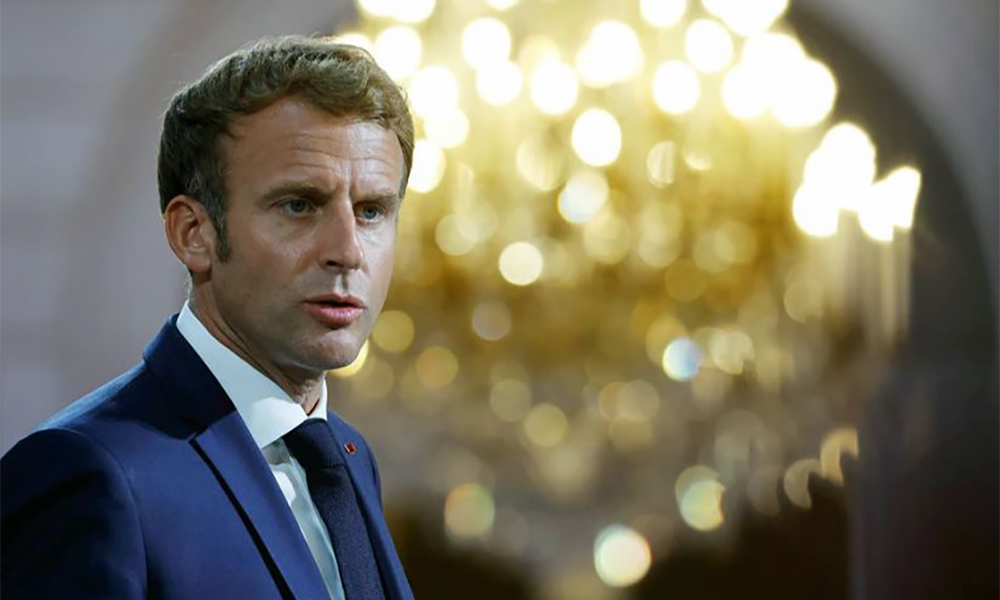
Iran's disputed uranium enrichment drive is nearing a point of no return and European partners to a moribund 2015 nuclear deal with Tehran should consider reimposing sanctions if there is no progress with Tehran, France's president said on Monday.
Addressing an annual conference with French ambassadors to outline foreign policy objectives in 2025, President Emmanuel Macron described Iran as the main "strategic and security challenge" for France and Europe, Reuters reported.
"The acceleration of the nuclear programme leads us nearly to the point of no return," Macron said.
Iran says it is enriching uranium for peaceful purposes and has stepped up the programme since U.S. President-elect Donald Trump pulled Washington out of the 2015 deal during his first term of office and restored tough U.S. sanctions on Tehran.
European powers France, Germany and Britain said last month Iran’s actions had further hollowed out the deal and would heighten its stockpile of high-enriched uranium without a "credible civilian justification".
The head of the U.N. nuclear watchdog said in December that the Islamic Republic was "dramatically" accelerating enrichment close to the roughly 90% level that is bomb-grade, read the report.
The three European powers were co-signatories to the 2015 deal in which Iran agreed to curb enrichment, seen by the West as a disguised effort to develop nuclear-weapons capability, in return for a lifting of international sanctions.
French, German and British diplomats are set to hold a follow-up meeting with Iranian counterparts on Jan. 13 after one last month held to discuss the possibility of serious negotiations in coming months to defuse tensions with Tehran with Trump due to return to the White House on Jan. 20.
"In the coming months we will have to ask ourselves whether to use ... the mechanism to restore sanctions," Macron said, referring to October 2025 when the 2015 accord formally expires.
Macron said Iran's ballistic missiles and support for Russia also posed threats to Europe and this would become one of the main dossiers to be addressed in diplomacy with Trump after he took office, Reuters reported.
Regional
Four killed, 32 injured in explosion in Pakistan
The banned Balochistan Liberation Army claimed the attack in a post on social media, while the Pakistani authorities have not confirmed the attack.
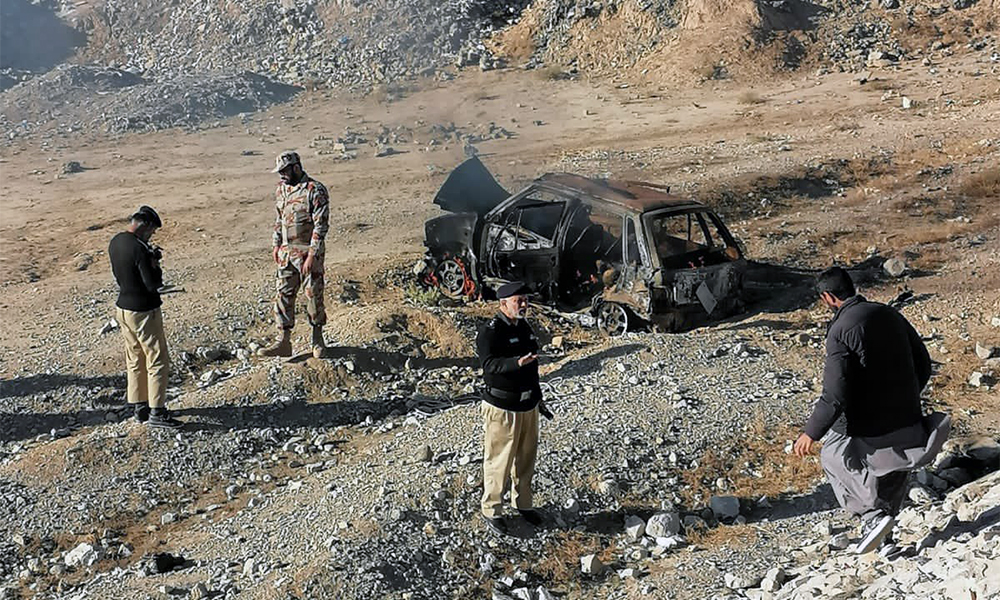
At least four people were killed and 32 others injured in an explosion in Pakistan's southwestern Balochistan province on Saturday, local media and officials said.
The incident happened in Turbat district of the province, where a convoy was attacked and a bus in it was struck during the assault, officials told Xinhua on condition of anonymity.
A senior police officer and his family members were injured in the attack and shifted to a nearby hospital, local reports said.
The banned Balochistan Liberation Army claimed the attack in a post on social media, while the Pakistani authorities have not confirmed the attack.
-
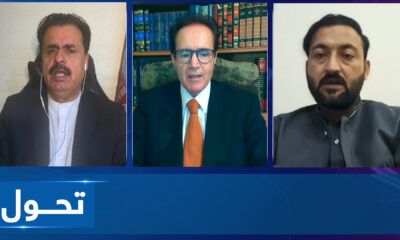
 Tahawol5 days ago
Tahawol5 days agoTahawol: IEA’s response to accusations of Pakistan
-
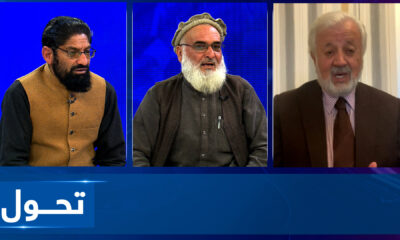
 Tahawol3 days ago
Tahawol3 days agoTahawol: Afghanistan in the US spotlight discussed
-
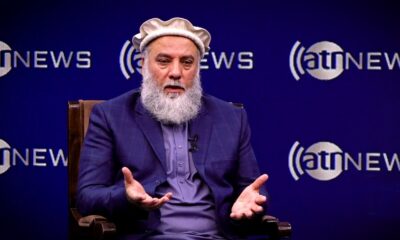
 Latest News4 days ago
Latest News4 days agoAzizi expresses concern, says Afghans invested billions in neighboring countries
-

 Interviews4 days ago
Interviews4 days agoDebate with acting Minister of Industry and Commerce
-
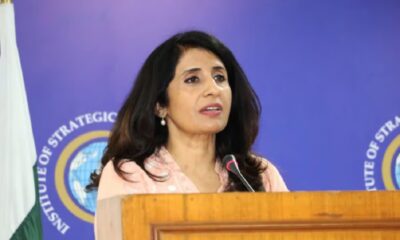
 Latest News4 days ago
Latest News4 days agoPakistan says it respects Afghanistan’s sovereignty
-
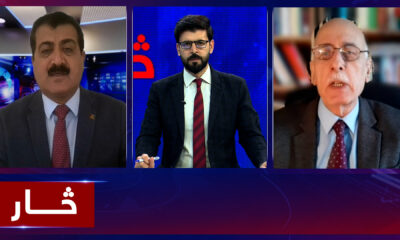
 Saar3 days ago
Saar3 days agoSaar: Pakistani officials’ remarks against Afghanistan discussed
-
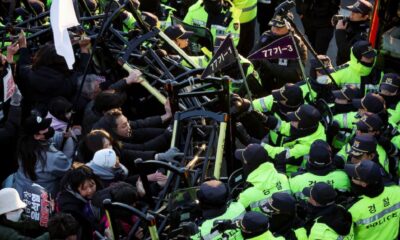
 World4 days ago
World4 days agoSouth Korean presidential guards prevent arrest of impeached Yoon after tense stand-off
-
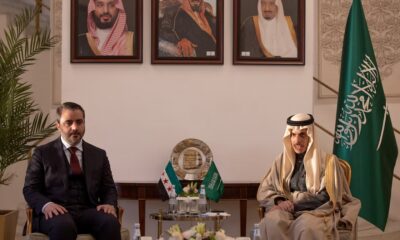
 Regional4 days ago
Regional4 days agoSyria to include all sectors in new government, foreign minister says


